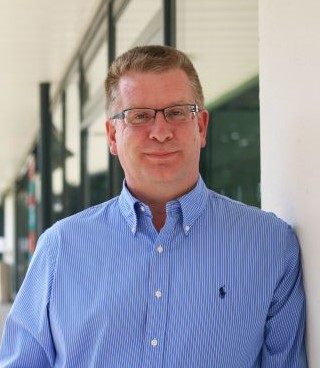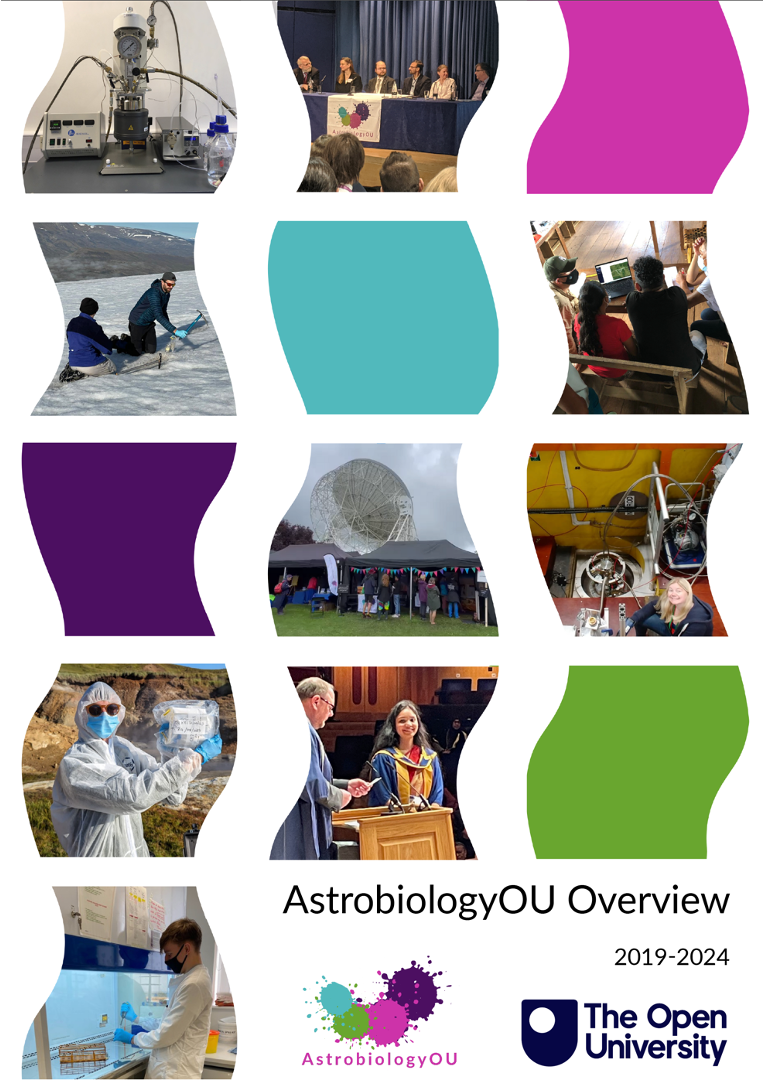News
Mars came to Campus
In late July, the International Festival: Milton Keynes came to campus for three days, welcoming visitors for an inspiring space-themed experience.
The Open University hosted Luke Jerram’s Mars in the courtyard of Berrill, from the 18th to 20th July. The breathtaking 7-metre installation was open and free for all to view, including many of our own staff, students and stakeholders.
New paper unveils key insights into the crust dynamics and recycling mechanisms of Venus
Dr. Julia Semprich and a team of researchers have published a paper in Nature Communications exploring the composition and behaviour of Venus’s crust to better understand its geological evolution. The team examines how mineral transitions, rock density, and melting processes shape the planet's basaltic crust, providing details about its thickness, recycling mechanisms, and tectonic activity.
Congratulations Professor Geraint (Taff) Morgan!
 After an incredible career packed with achievements, Taff (Geraint Morgan) will be leaving AstrobiologyOU to head off to new adventures as Professor of Analytical Chemistry at the University of Southampton. Known for his talent in analytical chemistry, Taff has spent years cracking tough problems, both in space and here on Earth.
After an incredible career packed with achievements, Taff (Geraint Morgan) will be leaving AstrobiologyOU to head off to new adventures as Professor of Analytical Chemistry at the University of Southampton. Known for his talent in analytical chemistry, Taff has spent years cracking tough problems, both in space and here on Earth.
AstrobiologyOU 5 Year Report

To mark the five year anniversary of our launch, we are thrilled to share with you the AstrobiologyOU 5 Year Report.
https://bit.ly/AstrobiologyOU19-24
Congratulations and thank you to everyone who’s collaborated, contributed, participated, funded, helped and supported the group!
PhD Opportunities Open For Applications
We have new PhD opportunities open for application with members of AstrobiologyOU.
For the details on the project and to find out where the information to make an application can be found visit our "Work With Us - PhD" page
A potential breakthrough in battle against antibiotic resistance
An academic from AstrobiologyOU at The Open University (OU) has uncovered a potential breakthrough in the prevention of antibiotic resistance in relation to MRSA, and other hospital pathogens, in an unlikely source – an historic brine bath in Droitwich Spa.
Introducing Professor Schwenzer
We are celebrating a new Professor in EEES. Susanne Schwenzer has recently been promoted to Professor of Planetary Mineralogy. Susanne has made contributions in research, teaching and public engagement over her impressive career.
Mineralogical Society of America's Distinguished Lecturer Program
Julia Semprich has been announced as part of the Mineralogical Society of America's Distinguished Lecturer Program
Congratulations to Dr Geraint (Taff) Morgan
Congratulations to Dr Geraint (Taff) Morgan on his appointment as STEM Research Infrastructure Lead & Director of the Centre for Analytical Solutions.
Inaugural International COSPAR Planetary Protection Week April 2024
In April 2024 we hosted the Inaugural International COSPAR (Committee on Space Research) Planetary Protection Week (ICPPW).